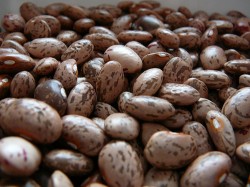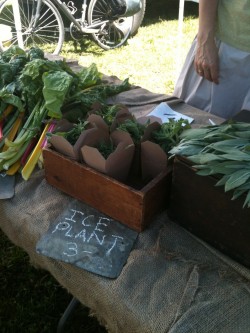I have to make a trip to the grocery store today and I’m not particularly looking forward to it.
Lately it seems like each time I shop for food, I end up spending more and more money. I’m on a budget and I can’t stand paying a fortune to feed my small family.
As a result, I’ve come up with quite a few mindful strategies to help us eat well for less money. By making a few changes, and yes, a couple of sacrifices too, anyone can lower their grocery bill significantly while still eating healthy, real food.
You Don’t Have to Go to the Fancy Grocery Store.
As much as I’d love to shop at only the fancy grocery stores, you know which ones I’m talking about—those stores cost a lot, so I only go for things I absolutely cannot get anywhere else. Because so many people are changing their eating habits for the better, pretty much all grocery stores now carry a wide range of organic products, even the bulk warehouse stores. You can get really good deals there.
Coupons.
Most coupons are for overpriced and highly processed items, however that isn’t always the case, so don’t immediately dismiss couponing.
I always peruse the fliers that come in the mail and often I’ve found coupons for five and ten dollars off my total grocery bill which don’t specify what I have to buy. Since I don’t like paper, I love that many stores now offer mobile coupons which can be redeemed through smart phones.
Simply sign up online at websites of participating retailers, pick and choose the coupons you want and present your phone at checkout. No paper, no clipping and lots of savings. Target, I’ve found is particularly great about offering coupons for fresh fruits and veggies, eggs, milk and other non-processed, staple food items.
Stop Eating Meat.
Going vegetarian will save you a fortune on your grocery bill, plus it’s better for the environment, the animals and your health. The end.
Dried Beans.
Dried beans are ridiculously inexpensive, easy to cook, filling, yummy and versatile. You cannot go wrong with dried beans, which are way cheaper than canned, plus they taste better, plus they have less sodium and no BPA. In my house we got into the habit of making a big pot of beans every Sunday or Monday so we can eat them all week long. We put them in burritos, make soup out of them, puree them into dips, mix them with rice or toss them into salads.
Hunt or Fish.
Meat eaters can get free meat by catching and butchering it themselves.
Since I was raised in a rural area where hunting is very common and now live on an island where most people fish, I may be somewhat desensitized to this idea and if it freaks you out, move on to the next item. I don’t have an issue with hunting or fishing (or crabbing or clamming and the like) if it’s done with respect, purely for food and if none of the animal is wasted. In many ways, it’s a better idea than factory farming or commercial fishing, both of which are extremely destructive and inhumane.
As someone who grew up eating fresh wild turkeys, venison, geese and ducks I can tell you that they taste better. A childhood spent crabbing, fishing and digging for clams taught me respect for my environment and gave me a connection to my food and where it came from.
Forage.
Full disclosure here, I do not hunt or fish, but I definitely forage. Just last week I caught my friend digging up some wild purslane that she found growing in my yard as a weed. She’s been known to do this with dandelions too and most people would be surprised to learn how many edible plants are available and ripe for the picking where they live.
As a child, my favorite thing to do was pick wild blackberries and nuts that grew in the forests near my home. Now I live in Florida and can find an abundance of tropical fruits and wild greens. Be careful about foraging on public properties that might be sprayed with chemicals, always ask permission before taking anything out of someone’s yard and for the love of God, please, please do not forage for mushrooms unless you are really experienced or with someone who is or you could end up dead. Northerners, I’m really jealous of your forests full of morels, by the way.
Food Not Lawns.
My husband and I are avid gardeners and we grow a lot of food, mostly in the form of tropical fruit trees because that’s what works best in our climate. We’ve also had good luck with tomatoes, peppers, herbs, eggplant, garlic and onions and cucumbers. If you are lucky enough to live in a more fertile, temperate climate, start gardening!
Live in an apartment? Gardening is still possible in pots on a balcony or windowsill. I’ve grown scallions and lettuce just fine in my kitchen window.
Trade.
Trading food with neighbors and friends is so much fun and allows everyone to sample a bigger variety without spending twice the money. I trade meals and harvests with friends all the time. In fact, I trade fruit from my yard with my friend’s mother in law who cooks me insanely delicious Vietnamese food. Win!
Last fall, I sent a box of mangoes from my tree to a friend in New York, who, in return, sent me a box of apples from her tree. My friend in Atlanta has even sent me bags of fresh pecans that grow in her yard. If you have a fruit tree or a garden and your neighbor has a different fruit tree or grows different veggies in her garden, offer to trade!
Bonus: you’ll probably make a new friend.
Stop Buying Beverages.
This may be a big sacrifice, but it can save a ton of cash. Drink only water and imagine the expenses that will be cut out. I’m not all that strict with this one because I need my coffee and tea, so be flexible with this rule and do what works best for you.
Bake From Scratch.
Homemade baked goods are far superior than boxed mixes and premade stuff anyway.
Reduce Waste: Juice and Make Soup.
We save money on food by simply wasting less. I used to throw out a depressing amount of produce that spoiled before I could eat it, but now, when I see fruits and veggies starting to turn, all I do is toss them in the juicer or the soup pot. The same goes for scraps.
Absolutely No Processed Foods. Ever. Ever.
Eat Seasonally.
In season produce costs less and is of better quality, especially when it’s local. Local means fresher and besides, why would anyone need apples in June when strawberries are at their peak, anyway? Everyone can wait ‘til September for an apple.
Beware of Farmer’s Markets (Sometimes).
I love going to farmer’s markets, but I use caution because honestly, sometimes the produce is as much as three times the price as the grocery store and yes, for the exact same things. For someone who wants to support local farmers and is willing to pay extra (which I often am) rather than contributing to large corporations this is all good, but sometimes we can’t always afford to do that, alas.
On numerous occasions I’ve been pleasantly surprised to learn that my supermarkets do in fact sell local, in season produce picked from farms in my area, so all I’m saying is do some research before buying if budgeting is a priority. Talk to the produce managers and ask questions. Put pressure on them to buy local if they aren’t already.
Buying in Bulk Isn’t Always Cheaper.
A lot of times it is, but not always, so take a little extra time to compare and do the math before you start digging in the bulk bins. I recently found organic pinto beans in a bag that were literally half the price as the bulk bin ones.
Love elephant and want to go steady?
Sign up for our (curated) daily and weekly newsletters!
Editor: Catherine Monkman
Photo: Flickr, elephant journal archives






Read 8 comments and reply